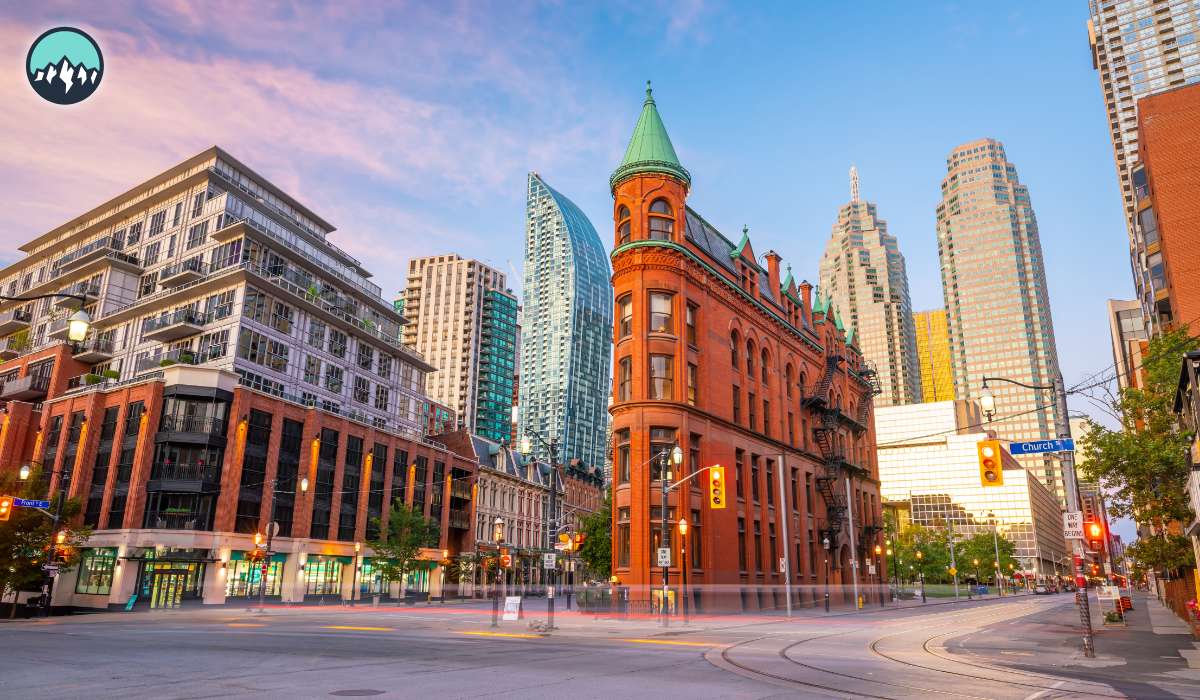Rural or Urban? Where to Settle Once You Move to Canada
19 Feb 2025

Moving to Canada is an exciting step toward a new future. But one of the biggest decisions you’ll face is choosing where to settle. Should you embrace the energy of Canadian cities or enjoy the serenity of rural Canada? Each option offers unique benefits, from career opportunities to cost of living. Let’s explore both choices to help you make the best decision.
The Appeal of Canada's Urban Centers

Canada's cities are thriving hubs of opportunity, culture, and convenience. Whether you seek career growth, vibrant communities, or top-tier public services, urban living has something for everyone.
Thriving Job Market and Economic Growth
Major cities like Toronto, Vancouver, and Montreal drive Canada's economy. These metropolitan areas boast booming industries such as technology, finance, healthcare, and education. If you have specialized skills, you’ll find numerous high-paying job opportunities. Companies in urban centers actively seek skilled workers, making city life attractive for career-focused individuals.
Multicultural Communities and Rich Cultural Life
Diversity defines Canadian cities. Immigrants from around the world create vibrant, multicultural neighborhoods, making integration easier for newcomers. You’ll enjoy world-class dining, entertainment, and festivals that celebrate global traditions. Whether it’s the Toronto International Film Festival or Montreal’s Jazz Festival, cultural experiences are limitless.
Reliable Public Services and Transportation
City living ensures access to essential services. Top-rated hospitals, prestigious universities, and efficient public transit make urban life convenient. Most cities have well-connected subway, bus, and train networks, reducing the need for a personal vehicle. This accessibility simplifies daily commutes and enhances overall quality of life.
Higher Cost of Living in Major Cities
While cities offer numerous benefits, they also come with a higher price tag. Housing costs in Vancouver and Toronto rank among the highest in Canada. Rental prices, groceries, and transportation expenses are significantly higher than in rural areas. Planning and budgeting are essential to maintaining financial stability while enjoying city life.
Learn more about the most affordable cities in Canada.
Is Urban Living Right for You?
Canadian cities offer a perfect blend of career opportunities, cultural experiences, and high-quality services. However, the cost of living is an important factor to consider. If you value diversity, convenience, and professional growth, a Canadian city could be your ideal new home.
The Charm of Rural Canada

If you prefer a peaceful lifestyle, rural Canada might be the perfect fit. Small towns and remote areas offer affordability, natural beauty, and a strong sense of community.
Lower Cost of Living
Compared to major cities, housing in rural areas is significantly cheaper. You can buy a home for a fraction of what you’d pay in an urban center. Everyday expenses, from food to utilities, are also lower, making rural life more budget-friendly.
A Strong Community Feel
In small towns, people tend to know their neighbors. Communities are close-knit, and residents support one another. If you value strong relationships and a slower pace of life, this can be a major advantage.
Access to Nature and Outdoor Activities
If you love the outdoors, rural Canada is paradise. You’ll have access to hiking, fishing, camping, and other outdoor activities. Living in rural areas means breathing fresh air and enjoying wide-open spaces.
Limited Job Opportunities and Services
One challenge of rural life is fewer job opportunities. While agriculture, forestry, and manufacturing thrive in these areas, other industries may have limited openings. Additionally, healthcare, education, and public transportation options can be more difficult to access.
Comparing Rural and Urban Life in Canada
Canada offers a diverse range of living experiences, shaped by its vast geography and unique regional characteristics. Urban areas, such as Toronto, Vancouver, and Montreal, are known for their bustling city life, diverse job markets, and vibrant cultural scenes. In contrast, rural Canada provides a quieter, more close-knit community atmosphere, with abundant access to nature and a lower cost of living. This table highlights key differences between rural and urban life in Canada, helping to illustrate the distinct advantages and challenges of each lifestyle.
| Feature | Urban Canada | Rural Canada |
|---|---|---|
| Job Market | Wide range of industries and higher salaries | Limited opportunities, but growing in some sectors |
| Cost of Living | High, especially housing and daily expenses | Lower, with affordable housing and essentials |
| Transportation | Public transit, ride-sharing, and walkable areas | Need for a personal vehicle |
| Community Life | Diverse, fast-paced, and social | Close-knit and peaceful |
| Access to Nature | Parks and green spaces in cities | Abundant outdoor activities |
New Developments For Rural Canada
The Rural Community Immigration Program (RCIP) is a grassroots initiative that empowers rural towns to identify and attract skilled immigrants tailored to their local labor market demands. This program simplifies the process of obtaining Canadian Permanent Residency, offering a more efficient and seamless pathway for qualified applicants.
Building on the achievements of comparable programs such as the Rural and Northern Immigration Pilot (RNIP) and the Atlantic Immigration Program (AIP), the RCIP aims to assist businesses in rural areas that face challenges in filling job openings, while also promoting economic development in these regions.
The primary goals of the RCIP are:
- Tackling significant labor shortages in rural communities.
- Fostering sustainable economic growth in areas outside major cities.
- Offering skilled workers a straightforward pathway to Permanent Residency.
- Enhancing local communities by developing a skilled workforce.
Unlike conventional immigration routes, the RCIP enables participating communities to actively engage in the selection of newcomers who align with their specific economic requirements. For individuals seeking to settle in rural Canada, this program presents an excellent opportunity.
So, Urban or Rural? The Choice is Yours

Deciding where to settle in Canada depends on your priorities. If career growth, entertainment, and convenience matter most, urban life might be ideal. However, if affordability, community, and nature appeal to you, rural Canada could be your perfect home.
Take the time to research different Canadian provinces, explore job markets, and consider your lifestyle preferences. No matter where you choose to settle, Canada offers endless opportunities for a bright future.
FAQs
Are There Services Available to Help Newcomers Settle in Canada?
Yes, Canada offers a variety of settlement services to assist newcomers in adapting to life in the country. These services include language training, employment support, housing assistance, and orientation programs. Many of these resources are provided by government-funded organizations, non-profits, and community groups to ensure a smooth transition for immigrants and their families.
What is the Quickest Way to Immigrate to Canada?
The fastest way to immigrate to Canada depends on your qualifications, skills, and circumstances. Programs like the Express Entry system, Provincial Nominee Programs (PNPs), and initiatives such as the RCIP or the Atlantic Immigration Program (AIP) often provide quicker pathways to Canadian Permanent Residency for eligible candidates. Express Entry, in particular, is designed for skilled workers and can process applications in as little as six months. However, the speed of immigration may vary based on individual profiles and program requirements.




